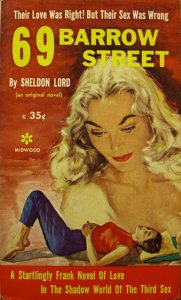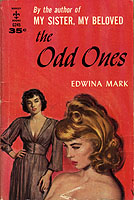In our last episode, Lois, Pam, and Dolly found Mrs. DeWitt’s will while cleaning her apartment — and discovered that their beloved landlady had a daughter no one knew about. The flabbergasted trio begin to speculate as to when and where Mrs. DeWitt produced the mysterious Gertrude DeWitt.
Missed the earlier episodes? You can find them all here. Or start from the beginning with Episode I and use the “next” button at the top the screen to move between episodes.
Missing Heiress
Dolly burst into the hallway, will in hand, Lois and Pam six feet behind. She couldn’t stay in the stuffy parlor a second longer—the flood of emotions had her spinning like a whirligig. She wanted simultaneously to shout the news from the housetop and to rush down to the sub-basement storeroom and tear off the rest of the molding as an outlet for her astonished joy. Mrs. DeWitt had a daughter! Dolly’s heart twanged with new hope. Somewhere, there was a younger version of Harriet, waiting to be found. There could be no better bequest than this living, breathing descendant, no, not even the walnut bedroom set and bust of Shakespeare Mrs. DeWitt had left her!
“I bet this was why her family kicked her out!” Dolly exclaimed.
“Or did it happen during her wild years in Berlin?” Pamela asked, evidently following her own train of thought.
“When did she reunite with Mrs. Payne-Putney and get put in charge of the Magdalena Arms?” Lois demanded. “Does anyone know?”
All the tenants had heard stories of Mrs. DeWitt’s colorful past; how she was cast out from her wealthy family, the years working as a chanteuse in Berlin nightclubs, her more genteel association with the Bay City Shakespeare Company, and the boarding school friendship with Lily LaPorte (later Mrs. Payne-Putney) that had led to the establishment of the Magdalena Arms.
The had all listened to their landlady’s burbling stream of reminiscence with half an ear. Now it was too late to ask questions, to fill in the gaps, or untangle contradictions. “How on earth are we going to find this person?” Lois broke the silence that had fallen as the three women pondered Mrs. DeWitt’s hazy history.
“We’ll hire a detective,” Pam began in her old take-charge way, then paused, “except, I’m not sure if they’re essential workers.”
Dolly smacked her fist into her other hand. “Listen! We don’t need to hire any private dicks, essential or not! We’ve got a whole houseful of brainy girls just twiddling their thumbs!” Before either Lois or Pamela could stop her, she strode to the back-hall doorway, where the old-fashioned breakfast gong still hung, and sounded it with a quick clang-clang-clang that echoed through the building.
“Dolly no!” Lois exclaimed. “No large gatherings!” She tugged at Pamela. “I think we’d better be going!”
But Pamela wasn’t paying attention. She was staring, mesmerized, over Dolly’s shoulder. Lois gasped and clapped a hand to her masked mouth. Dolly swung around to see Lon, who’d evidently just emerged from Angelo’s hair salon. Lon’s stylish, close-cropped head made it plain what they’d been up to! Behind them was Angelo, key in hand as he turned to lock the salon door. At the sight of his unexpected audience, he froze.
Next: The Magdalena Girls Rally ’round
Finding a missing heir is just the sort of puzzle the tenants need to distract them from their pandemic woes, but is there more serious trouble secreted in one of the small apartments — something more basic than boredom, anxiety, depression, irritability, rebelliousness and a mad desire to break free of all strictures? Is someone at the Magdalena Arms going hungry?




 69 Barrow Street, by Lawrence Block writing as Sheldon Lord, Tower, 1959
69 Barrow Street, by Lawrence Block writing as Sheldon Lord, Tower, 1959
